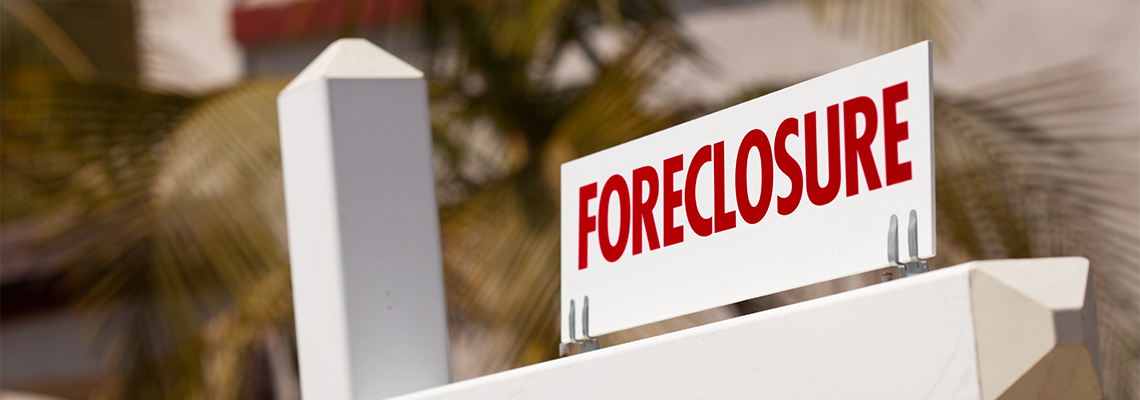
If you’re behind on mortgage payments and have received a foreclosure notice, it can feel like you’re running out of options fast. The fear of losing your home is real, and the uncertainty can be overwhelming.
At Checkett, Pauly, Bay & Morgan, LLC we know how stressful this process can be, and we’re here to walk you through your choices. Whether you’re considering a payment plan or wondering if bankruptcy is right for you, it’s important to know what legal protections may be available.
Our bankruptcy lawyer in Carthage, Missouri, can help you understand how to halt the foreclosure process or even prevent it entirely, depending on your situation. From loan modifications to filing for Chapter 13 bankruptcy, you may have more control than you think. Read on for more information about your options and how to take action before it's too late.
Communicate With Your Lender Right Away
As soon as you realize you're struggling to make mortgage payments, reach out to your lender. Many homeowners avoid this step out of fear or embarrassment, but open communication can lead to helpful solutions. Lenders may offer temporary forbearance or a repayment plan that lets you catch up without further penalties.
Often, lenders don’t want to go through the foreclosure process either. It’s costly and time-consuming for them, too. Explaining your financial difficulties and showing an effort to work something out can keep your home out of foreclosure court. If the lender is unwilling to negotiate, this opens the door to exploring more assertive legal strategies.
If negotiations don’t work or if the lender begins the foreclosure process anyway, you’ll want to explore ways to slow or stop the proceedings.
Consider Loan Modification or Refinancing
A loan modification adjusts your original mortgage agreement to reduce the monthly payment, change the interest rate or extend the loan term. This can be one of the more straightforward ways to avoid foreclosure. Unlike refinancing, loan modification doesn't require you to take out a new loan—it simply alters your existing one.
If your credit is still in relatively good shape, refinancing into a more manageable mortgage might be another option. However, this can be difficult if you're already behind on payments. A bankruptcy lawyer can help you determine whether modification or refinancing makes more sense based on your finances and the timeline of your foreclosure.
When loan modification or refinancing isn't enough to stop foreclosure, other legal remedies become more relevant.
File for Chapter 13 Bankruptcy to Stop Foreclosure
Chapter 13 bankruptcy is one of the most powerful tools available if you’re trying to save your home. Once filed, it immediately triggers an “automatic stay,” which pauses all collection efforts—including foreclosure. This gives you time to reorganize your debts and catch up on missed mortgage payments through a structured repayment plan.
This type of bankruptcy typically spans three to five years and allows you to make up for arrears while keeping your home. A bankruptcy lawyer can propose a feasible repayment plan that includes your mortgage and other secured debts. You'll also gain the breathing room needed to recover financially.
If you don't qualify for Chapter 13, Chapter 7 bankruptcy may offer temporary relief, though it's not designed to help you keep property. This leads directly into the next option you may want to consider.
Look Into Chapter 7 Bankruptcy for Temporary Relief
While Chapter 7 bankruptcy doesn't let you keep your home if you're behind on payments, it can still serve a purpose. Like Chapter 13, filing for Chapter 7 also triggers an automatic stay, which delays foreclosure for a short time—usually a few months. This can give you a window to make arrangements or negotiate with your lender.
In Chapter 7, your non-exempt assets may be sold to pay off debts, and most unsecured debts are wiped out. Although it won’t save your home in the long term, it may allow you to walk away from other financial obligations so you can focus on relocation or starting over.
A bankruptcy lawyer can explain what debts may be discharged and how Chapter 7 could work in your specific case.
If bankruptcy doesn’t align with your financial goals, other non-bankruptcy strategies may still offer viable solutions.
Explore a Short Sale as an Alternative
A short sale involves selling your home for less than the remaining balance on your mortgage, with your lender’s approval. While this may not be ideal, it prevents foreclosure from appearing on your credit report and gives you more control over the sale of your property.
You’ll need to prove to the lender that you’re experiencing financial hardship and that the home won’t sell for the full mortgage amount. The process can take time, but lenders often prefer short sales over the lengthy foreclosure process. A bankruptcy lawyer familiar with real estate matters can also help negotiate with your lender during the short sale process.
Short sales can still impact your credit score, but often not as severely as a foreclosure. If a short sale isn't approved or if you owe more than the property is worth, the next option may be worth considering.
Consider a Deed in Lieu of Foreclosure
A deed in lieu of foreclosure means voluntarily giving the property back to the lender to satisfy the mortgage debt. This is usually only an option when the property has little or no equity and the homeowner can’t afford to keep making payments. It’s essentially a mutual agreement that avoids the hassle and public record of foreclosure.
Lenders will usually require that the home has been listed for sale first and that there are no other liens on the property. You may also be asked to vacate the home quickly. While this does impact your credit, it’s less damaging than foreclosure and could allow for quicker financial recovery.
If neither short sales nor deeds in lieu are appropriate, you might explore a legal defense to foreclosure based on how the lender has handled your loan.
Challenge the Foreclosure in Court
In some cases, you may be able to challenge the foreclosure itself. Lenders must follow strict procedures when initiating foreclosure, and mistakes in the paperwork or violation of state laws could work in your favor. Common defenses include improper notice, misapplied payments or the lender’s lack of legal standing to foreclose.
This route typically involves filing a formal response in court and may require litigation. A bankruptcy lawyer can help you assess whether you have valid grounds to challenge the foreclosure and guide you through the legal process.
Even if the challenge doesn't ultimately succeed, it can buy valuable time to explore other options. As foreclosure looms closer, you may want to sell your home voluntarily to protect your equity.
Sell the Property Voluntarily Before Foreclosure
Selling your home before it goes into foreclosure can help you preserve your credit and avoid the long-term consequences of a foreclosure on your record. If you have equity in your home, this can also allow you to pay off the mortgage and possibly walk away with cash in hand.
Timing is critical—once a foreclosure auction is scheduled, the window to sell becomes very narrow. Working with a real estate agent who understands distressed properties can help speed up the process. A bankruptcy lawyer may also assist in coordinating the timing if you’re considering bankruptcy in tandem with a sale.
If you’re still unsure which path to take, there are several practical factors to think about when deciding how to respond to foreclosure.
Factors to Consider When Choosing a Strategy
Choosing how to handle a foreclosure depends on many personal, legal, and financial variables. Some important things to evaluate include:
Your long-term financial goals: If you want to stay in your home, Chapter 13 or a loan modification may be best. If you’re ready to move on, a short sale or deed in lieu could help you exit with less damage.
Your current income and job stability: Your ability to afford future mortgage payments or bankruptcy repayment plans plays a major role in determining your options.
The amount of equity in your home: If you have significant equity, selling the property might allow you to pay off the mortgage and avoid legal complications.
Timing and foreclosure stage: Early intervention gives you more flexibility. Once foreclosure is underway or your home is scheduled for auction, your legal options narrow.
Thinking through these variables with a bankruptcy lawyer can help clarify the most practical and protective path forward. In some cases, outside assistance might offer a bridge to longer-term stability.
Seek Help From Housing Counselors or State Programs
Nonprofit housing counselors offer free advice and can sometimes help negotiate directly with your lender. These counselors are HUD-approved and trained to assess your financial situation and provide tailored recommendations. State and local governments may also offer temporary relief or mortgage assistance programs for qualifying homeowners.
These services are especially helpful if you're not ready to file for bankruptcy or if you want to try all possible non-legal options first. However, if you've tried these and are still facing foreclosure, it may be time to consider more formal legal strategies.
Before making any final decision, it's helpful to understand how a bankruptcy lawyer can support you in more than just bankruptcy proceedings.
Take the Next Step Toward Protecting Your Home
Facing foreclosure is incredibly stressful, but you don’t have to go through it alone. You have options—and the earlier you act, the more choices you’ll have. At our firm, we serve clients throughout Carthage, Missouri. Reach out to Checkett, Pauly, Bay & Morgan, LLC today to speak with an experienced bankruptcy lawyer who can help you take the right steps before it’s too late.



